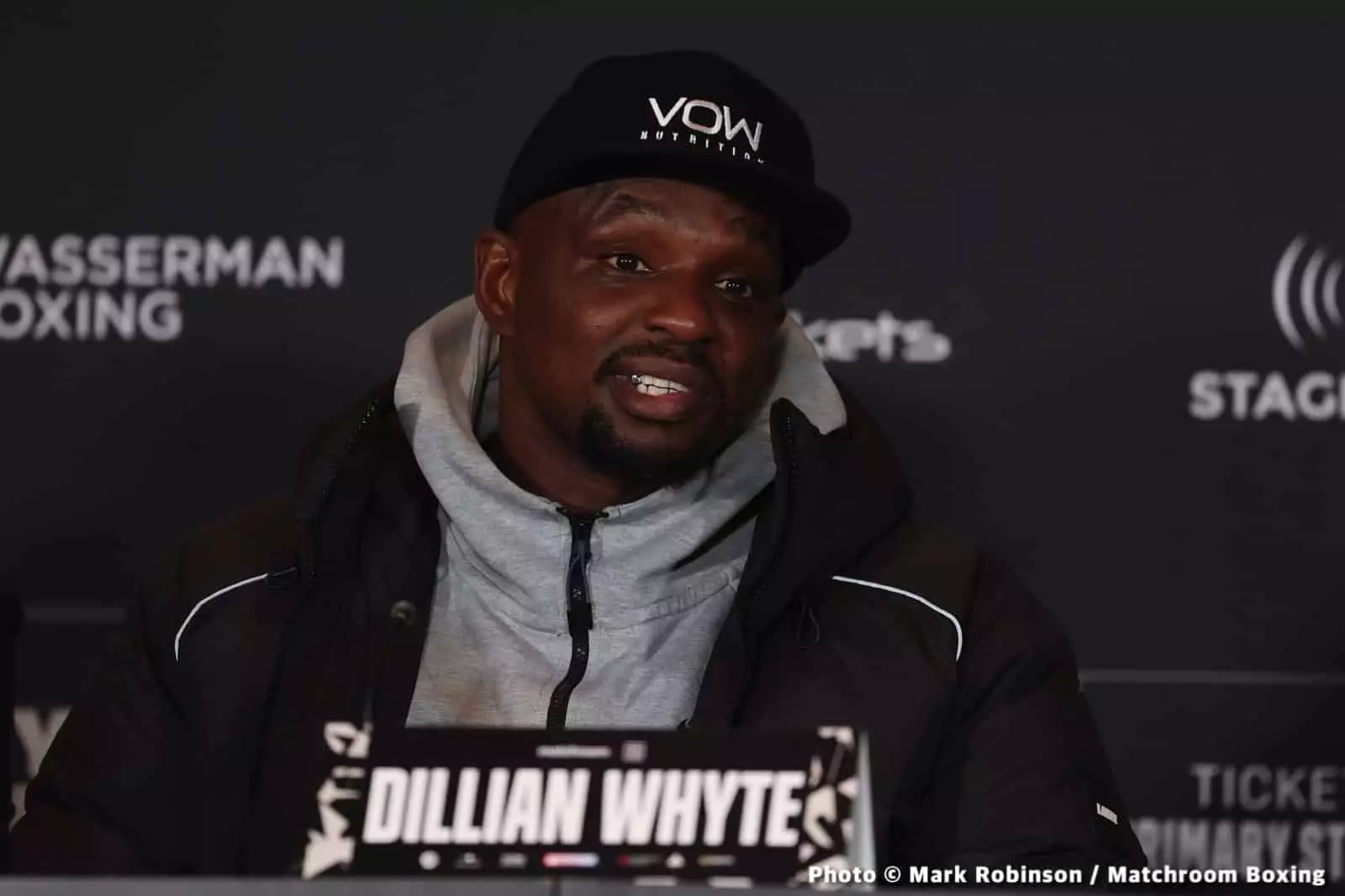In the dynamic world of heavyweight boxing, the narrative often shifts dramatically with each match. Dillian Whyte, a prominent figure and former title challenger, has recently weighed in on the implications of losses in the heavyweight division. His forthcoming match against Ebenezer Tetteh in Gibraltar on December 15 serves as an apt backdrop for his analysis. Whyte believes that the sport’s fans and commentators often lose perspective when a high-profile fighter experiences defeat, particularly someone like Anthony Joshua, who recently faced a knockout loss to Daniel Dubois.
Whyte emphasizes the need for a more optimistic outlook on competition in heavyweight boxing. Instead of prematurely calling for fighters to retire after a loss, he urges audiences to appreciate the fact that top-tier fighters are willing to compete against each other. He argues that losses should not eclipse the excitement of matchups that were once rare in the boxing scene.
Critically, Whyte asserts that Joshua still possesses significant potential and appeal as a fighter. His comments highlight that while Joshua may have faced setbacks, he remains a “big draw” and has shown signs of resilience. Whyte’s perspective encourages fans to recognize the complexities of heavyweight boxing – a sport where a single punch can alter the outcome and where fighters evolve through experience.
Dillian Whyte’s insights reflect a deeper understanding of the nature of heavyweight boxing, where the line between victory and defeat can be razor-thin. He argues that the undue emphasis on a fighter’s record can hinder not only their careers but the sport as a whole. The reluctance to match top fighters against each other due to fear of losing creates a stagnant atmosphere. If the focus shifted towards celebrating competitive bouts instead of fixating on win-loss records, the sport could flourish, offering fans the thrilling clashes they crave.
While Whyte’s encouragement for Joshua to continue might stem from a genuine belief in his fighting spirit, one cannot ignore the strategic implications. It’s no secret that rivalries fuel the boxing narrative. Whyte likely harbors aspirations to reignite his own rivalry with Joshua, potentially eyeing lucrative bouts down the line. His upcoming return and hope for a matchup with Joshua hinge on both fighters sustaining their relevance in the sport.
The prospect of a rematch serves to tantalize fans and could create a significant draw in the coming years. Whyte’s own path back to contention may be intertwined with Joshua’s future decisions; hence, there is a mutual interest in sustaining their careers rather than prematurely hanging up the gloves.
As the heavyweight boxing arena continues to evolve, the insights of fighters like Dillian Whyte are invaluable. His call for Anthony Joshua, and by extension all heavyweights, to persevere even in the face of adversity presents a refreshing narrative against the backdrop of a sport often dominated by the finality of defeat. Whether fans will heed this advice remains to be seen, but one thing is clear: a lively heavyweight division is essential for the sport’s vitality, and both Whyte and Joshua have roles to play in this unfolding drama.

